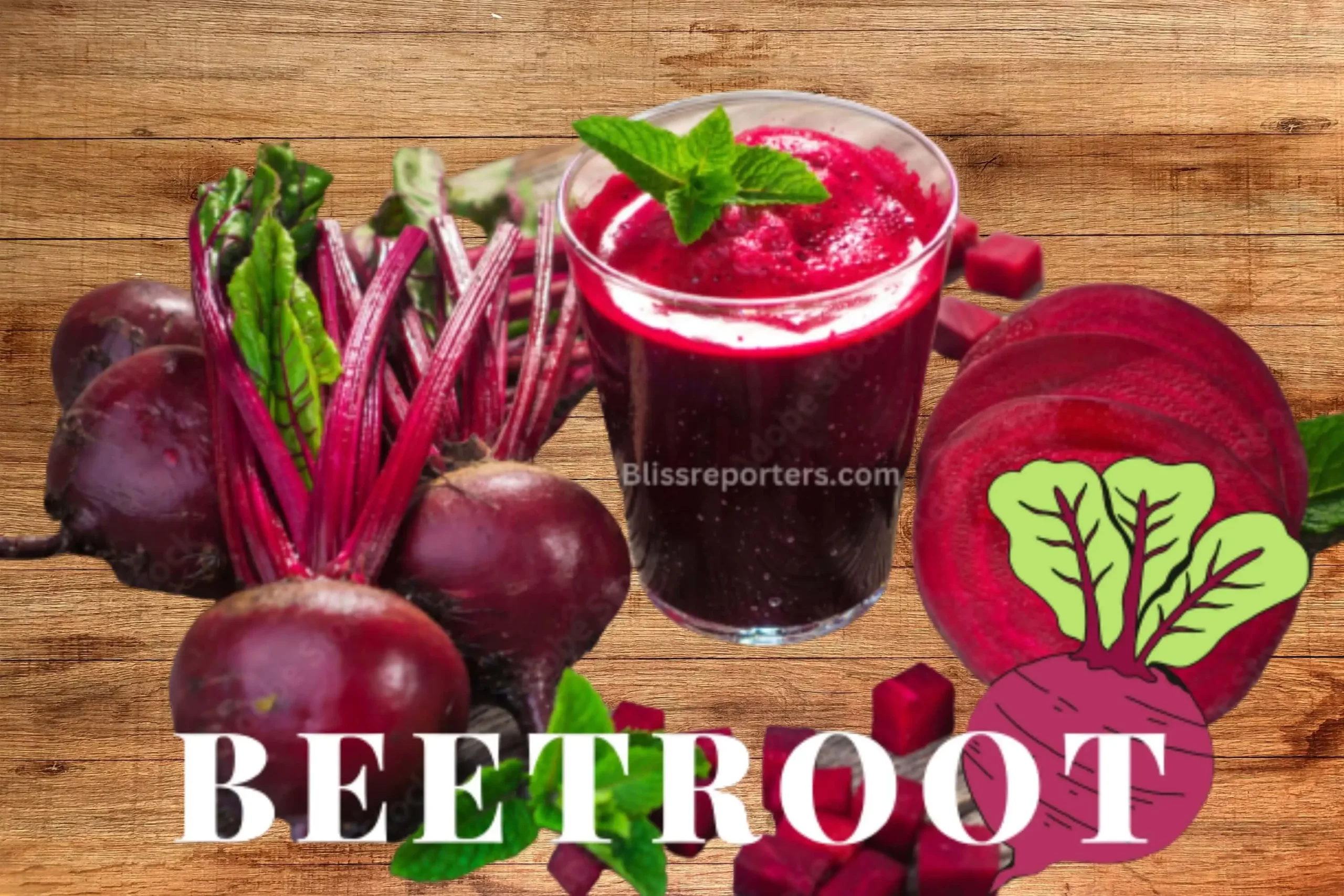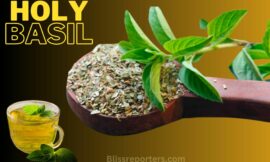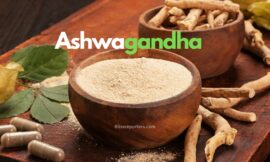Last updated on May 13th, 2023 at 08:29 am
Beetroots are one of those vegetables which we don’t eat as often and miss out on many of their health benefits as it is a rich source of minerals and vitamins that can provide multiple health benefits including improved blood flow, exercise performance, and blood pressure.
In this Bliss Report, we are going to talk about why beetroots must be a part of your diet and what health benefits it will bring you.
What is Beetroot:
Beetroot, a member of the Amaranthaceae family, is scientifically known as “beta vulgaris”. The root has been used for medicinal purposes for centuries by people from ancient Babylon, Greece, Rome, and North Africa. It has been used as an aphrodisiac in some cultures and some modern research seems to confirm this claim. In Modern times beetroot was first noticed in Germany and Italy in the 1500s and was used to make sugar by German chemists in the 1700s.
It has been used as a natural source of red dye to color fabrics and hair, the plant pigments present in beetroot along with dietary fibers make it an anti-inflammatory and a home remedy for various gastrointestinal problems.
Beetroot is a rich source of various minerals, including vitamin A, iron, antioxidants, vitamin B9, folate, manganese, potassium, and others. Beetroots get their antioxidant properties from betanins which are a type of tyrosine-derived plant pigments called betalains. These pigments give beetroots their vibrant color and work to reduce the production of free radicals, which improves heart health and might prevent cancer and other diseases.
As a supplement, beetroots extract may result in lowering LDL cholesterol levels, also known as ‘bad cholesterol’. Beetroot can regulate nitrous oxide (NO) production in blood vessels, which can prevent vascular health issues. Clinical studies have found that beetroot powder can maintain blood pressure and reduce cholesterol and fat. Beetroot powder can also protect organs and improve liver and kidney functioning.
Nutrients of Beetroot:
Beetroot is a rich source of folate (vitamin B9) and potassium. Folate in beetroots keeps blood vessels healthy and potassium results in better heart health. Other nutrients of beetroots are:
- Vitamin A: The presence of vitamin A in beetroot can prevent blood vessel damage and reduce the risk of stroke and heart disease.
- Vitamin C: It works as an antioxidant, can boost our immune system, and it is good for skin health.
- Manganese: Manganese works as a co-factor in energy generation, brain function, and even in the immune response. Manganese helps in the metabolism of several enzymes.
- Vitamin A: Supports healthy vision, immune system function, and skin health.
- Vitamin C: Acts as an antioxidant, boosts immune system function, and aids in collagen production for healthy skin and tissues.
- Vitamin K: Essential for blood clotting and bone health.
- Thiamine (vitamin B1): Plays a role in energy production and nerve function.
- Riboflavin (vitamin B2): Supports energy production and aids in the breakdown of fats and carbohydrates.
- Niacin (vitamin B3): Helps maintain healthy skin, supports nerve function, and aids in energy metabolism.
- Pantothenic acid (vitamin B5): Essential for energy metabolism and the synthesis of hormones and cholesterol.
- Pyridoxine (vitamin B6): Supports immune system function, brain development, and the production of red blood cells.
- Betaine: Helps reduce the risk of chronic diseases, including heart disease, by reducing inflammation and supporting liver function.
- Choline: Supports brain and nerve function, and aids in fat metabolism and liver function.
- Calcium: Essential for strong bones and teeth, supports muscle and nerve function, and aids in blood clotting.
- Iron: Essential for the production of red blood cells and oxygen transport throughout the body.
- Magnesium: Supports bone health, nerve, and muscle function, and aids in energy metabolism and protein synthesis.
- Phosphorus: Essential for bone and teeth health, and aids in energy metabolism and the formation of DNA and cell membranes.
- Sodium: Important for fluid balance, nerve and muscle function, and aids in blood pressure regulation.
- Zinc: Supports immune system function, aids in wound healing, and aids in protein and DNA synthesis.
- Copper: Essential for iron absorption and the formation of red blood cells, aids in energy metabolism, and acts as an antioxidant.
- Manganese: Essential for bone health and wound healing, and aids in energy metabolism and the production of collagen and other proteins.
- Selenium: Acts as an antioxidant, supports thyroid function, and aids in immune system function.
Benefits of Beetroot:
Beetroot as a part of a healthy diet has several health benefits, while supplementation with beetroot extract would have more accelerated health effects, some of those benefits are:
Anti-aging effect:
The presence of vitamin A in beets may result in better health. Beetroot contains Lutein which is an antioxidant. Antioxidants in the body prevent the production of free radicals and protect the skin damage caused by oxidation. These properties of beetroots detoxify and purify the skin which slows down aging.
Additionally, beetroots also contain vitamin C which helps in the production of collagen further boosting its anti-aging effects by supporting better skin health.
Beetroot Benefits for Female Pregnancy:
According to a study nitrate and folic acids present in the beets assist pregnancy by increasing oxygenation. The folic acid present in the beetroots can prevent neural birth defects such as spina bifida, in babies.
Cardiovascular health:
Daily intake of beetroot juice may help in the management of hypertension as it contains nitrates which are known vasodilators. Nitrates present in the beetroots can lower blood pressure and reduce chances of stroke and prevent heart disease. A regular intake of beetroot juice can enhance body function and improve endurance by increasing better oxygen utilization in the body.
Beetroot Extracts For Cancer Treatment:
Some cancers including breast cancer and prostate cancer can be controllable by a dose of beetroot extracts. Beetroot contains Betanin, an antioxidant and the presence of Betanin in beets can have chemoprotective and anti-cancer effects against these cancers.
A study on the anti-carcinogenic effects of beetroot found that beetroot may assist in the prevention of certain cancers such as lung and skin cancer. Additionally, the study found that drinking beetroot juice with carrot extract may be a potential treatment for leukemia, a type of cancer that affects the blood and bone marrow.
Promotes Liver Health:
Beetroots have nutrients like iron, betaine, and calcium which might promote liver health and function. Beetroot also contains pectin, a fiber. Pectin present in the beetroot along with zinc and Copper protects the liver from oxidative stress-induced liver cell damage.
Work as an Anti Inflammatory:
The presence of folate, betalains, and fiber work as an anti-inflammatory and prevents the production of pro-inflammatory enzymes which may lead to better kidney function. Beetroot helps the kidney cells by protecting them from oxidative stress and inflammation. Nitrates present in beets can help in removing harmful compounds from the bloodstream.
Promotes Brain Health:
Beets can improve neuroplasticity (the brain’s ability to restructure itself). The presence of nitrates in beets enhances brain health and improves the flow of oxygenated blood to the brain. According to a research study, beetroot juice may be used to prevent neurodegenerative diseases such as Alzheimer’s and to improve cognitive health.
Control Blood Sugar levels:
According to research in Iceland, the fiber from beet sugar can reduce the chances of hyperglycemia and prevent insulin resistance in the cells, which leads to better insulin utilization and prevents organ damage caused by high blood sugar.
Provide better Digestion:
In the past red beets are used to deal with constipation. Red beets are high in fiber and may have prebiotic properties to promote the development of good bacteria in the gut. These bacteria may improve digestion and may help treat illnesses associated with the digestive system.
Can reduce ‘Bad’ Cholesterol levels:
Beetroots are low in calories and have zero cholesterol. In a study on animals, it was found that rats that were fed with beetroot extracts experienced a reduction in their cholesterol levels in comparison to those that were not.
May help treat Anemia:
A diet low in iron may lead to anemia. Beetroots are a good source of not only iron but vitamin C and pectin both of which help in the absorption of iron in the body to prevent or reduce the chances of anemia.
Can improve Sexual health:
According to many historians, Romans used beetroots as an aphrodisiac to increase sexual performance. The nutritional assessment of Beetroots shows that it contains Boron which can increase the production of sex hormones and may increase the metabolism of testosterone which can positively affect sexual performance and stamina.
Prevent Cataracts:
Green beets are a rich source of beta-carotene which may slow down the formation of cataracts.
May prevent Osteoporosis:
Beets contain calcium which strengthens bones and teeth. The nutrients present in Beetroots can also help treat osteoporosis which causes weak and fragile bones.
Beetroots contain silica which increases bone density and health. It assists in the absorption of calcium in the bone which helps strengthen bone and increases bone mass.
Moreover, Magnese present in beetroots not only helps in maintaining bone health but also increases the production of collagen which gives structural support to the bones and joints.
Types of Edible Beetroots:
The National Gardening Association identified five subtypes of garden beets that are edible:
- Golden: carrot-colored root.
- Lutz green leaf: the largest variety of beets.
- Chioggia: roots are white and red.
- Formanova: a cylindrical shape-like variety.
- Detroit dark red: dark red.
Beetroot Recipes:
You can make your desired recipe of beets according to your need and taste for them. Some dishes which can be made with beetroots are:
- Pancakes
- Waffles
- Beet turmeric mango smoothie
- Veggie packed hummus
- Strawberry beet salad
You may also use beetroot juice and supplements as per convenience.
Possible Side Effects:
Beetroots are used as a salad or to make soup and have no major harmful effects on the body. However, excess use in the form of juices or extracts may lead to some side effects:
- Kidney stones.
- Mild allergic reactions.
- Fatigue during pregnancy.
- Stomach upsets.
- Hypotensive effects.
- Beeturia (discoloration of urine).
- Anaphylaxis (a type of allergy in which the body becomes hypersensitive).
- Colored stools.
- Liver-toxic effects.
What we can conclude:
Daily consumption of Beetroot can boost immunity. Beetroot prevents lung and skin cancer and reduces the progression rate of leukemia. Beets promote heart health and improve cognitive health, help to improve digestion, and maintain better-oxygenated blood flow. Beetroot may be used as a part of the diet or in the form of beetroot supplements that come in different forms including beetroot powder. Beetroot juice is highly nutritious and keeps you healthy and fit. Beetroot is safe to use and we can include it directly in our food to boost our health.











